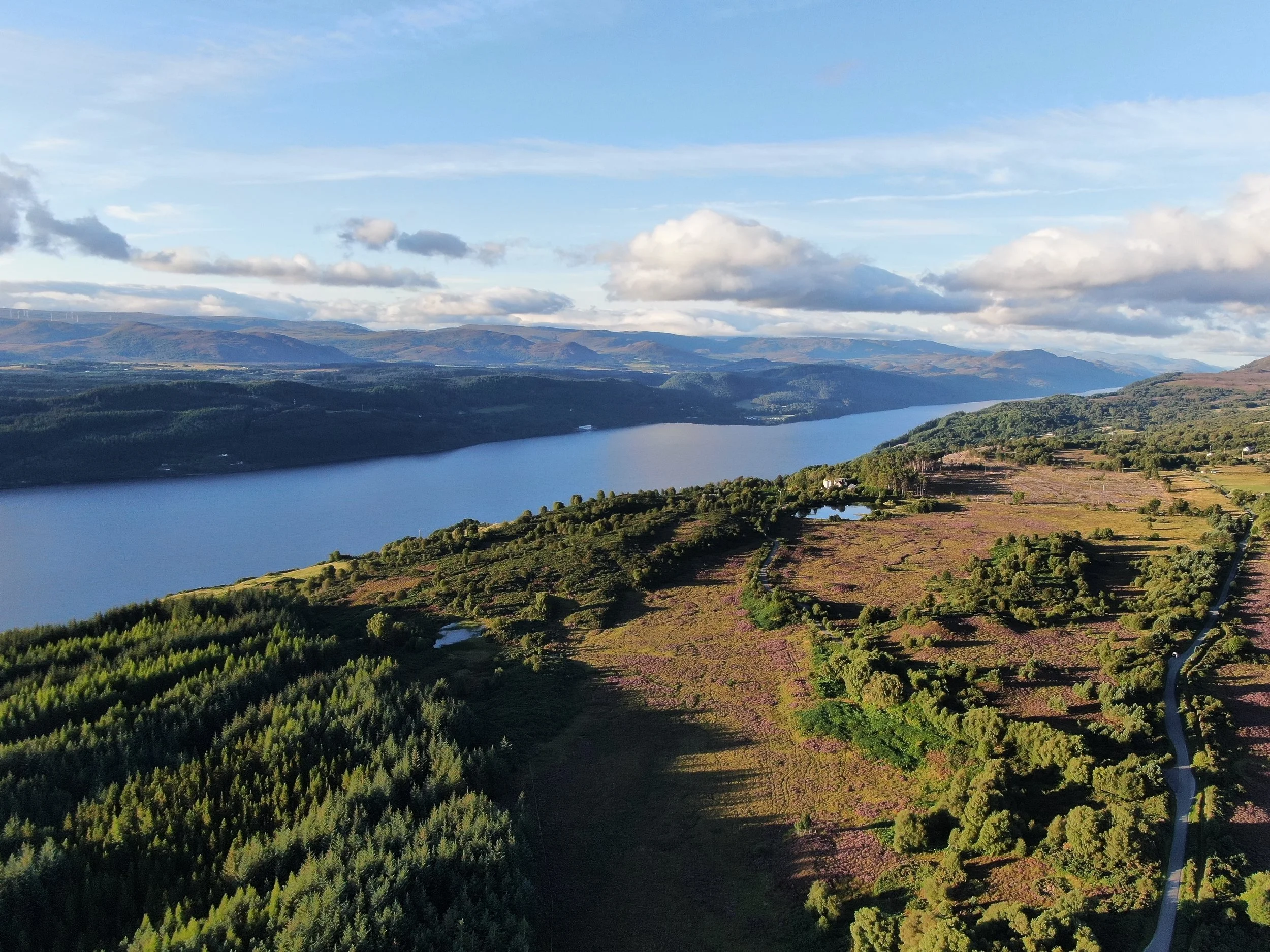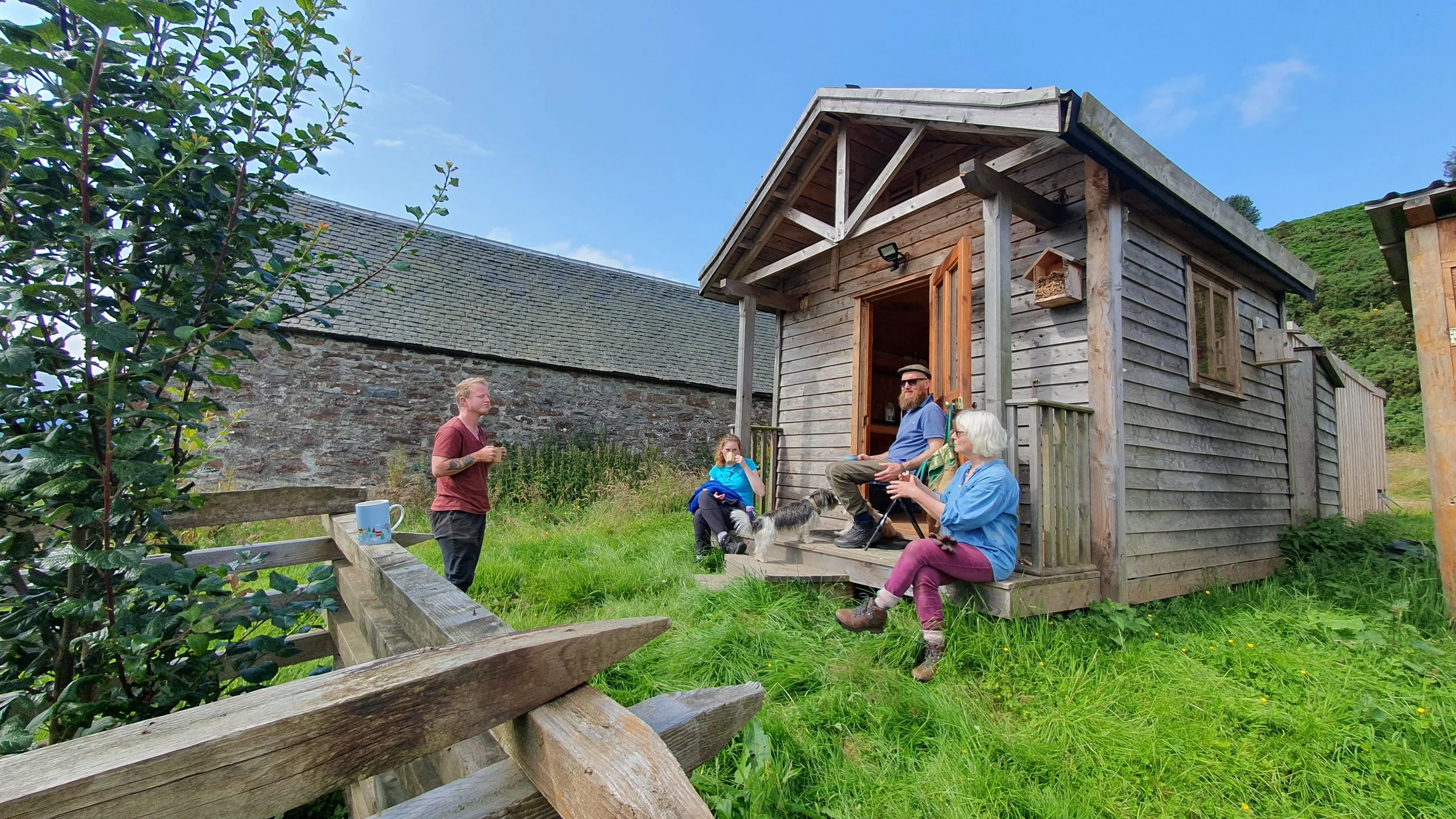
Bunloit
Bunloit Estate is based on the western shores of Loch Ness, near Drumnadrochit, Inverness-shire. The intertwining ecosystems of woodland, peatland and grassland at this site provide a home for an abundance of species, from the microorganisms in the soil to the large mammals that roam the land.
Bunloit hosts a variety of Scottish species, such as the pine marten and red squirrel, as well as the more commonly known mammal species, badger and fox. A mix of roe, sika and red deer also live on the estate, accompanied by wild boar.
Bird life also excels here with sightings of crested tits, crossbills, barn and tawney owls, a variety of raptors including ravens, red kites and golden eagles. Such a diverse web of life creates a place that erupts with life through the warmer months as the insects emerge, alongside the rich flora of the Highlands.
Our science-led land management aims to increase biodiversity, carbon storage and sequestration, while establishing healthy ecosystems that can cope with the expected impacts of climate change and support thriving communities by providing numerous benefits to local people.
Nature days at Bunloit - volunteering
Join one of our regular volunteer days, running on the first and third of each month. Take part in nature restoration activities, wildlife walks and survey work with our rangers at Bunloit and experience rewilding firsthand. Find out more in our events calendar.
START YEAR: 2020
SIZE: 513 hectares
HABITAT: Mosaic of broadleaf woodland, grassland, peatland and non native plantations
INTERESTING FACT: Bunloit is home to a population of wild boar, which we monitor closely. Find out more here.
Stay at Bunloit
Planning a trip to the highlands? Why not wake up to panoramic views over Loch Ness, enjoy walks along the Great Glen Way, go wildlife spotting and return to cosy evenings by the fire. We have two self-catering cottages at Bunloit, find out more here.
Meet the Bunloit team!
Join one of our nature days and come and say hello to our friendly estate team at Bunloit!
What are we doing at Bunloit?
Bunloit vision
Bunloit is the primary scientific test-bed of Highlands Rewilding. With innovative research and cutting edge technologies, we are an open air laboratory that is providing the evidence base for change in land management practices, towards a more sustainable model for people and nature.
The local community continues to benefit from rural green new jobs, enhanced nature and investment in the local area. Children will be inspired about the environment whilst eco-ventures prosper in the surrounding area.
Bunloit is also part of a wider vision, to create an east to west corridor called Affric Highlands. Encouraging landscape-scale rewilding and re-peopling at the heart of the Highlands.







